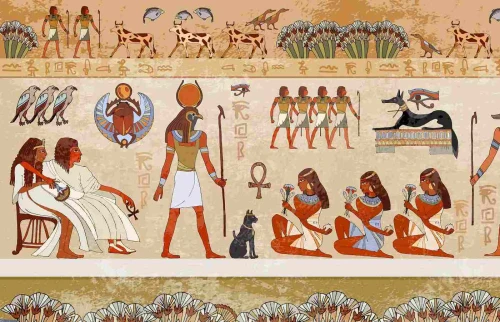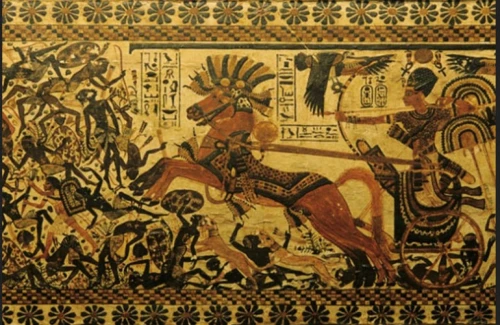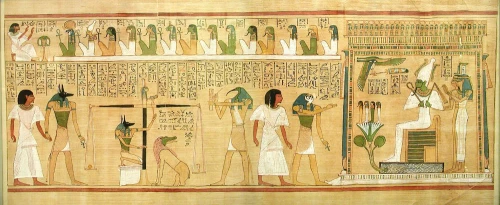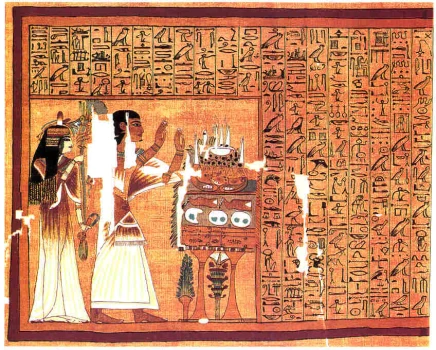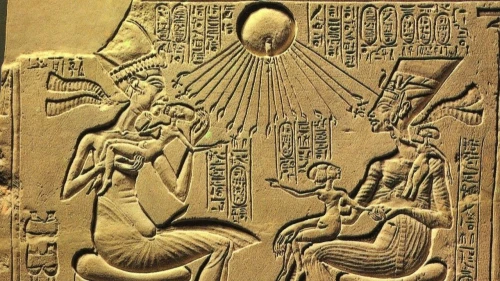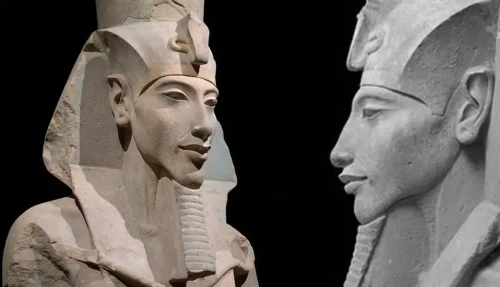
King Akhenaten of the 18th Dynasty of the Egyptian New Kingdom reigned from 1353 to 1336 BCE. His name translates to "the faithful to Aten," the god. After joining the Aten cult, Akhenaten gave himself this moniker.
He was formerly known as Amenhotep IV before this conversion (or Amenophis IV). He was the son of Amenhotep III (1386–1353 BCE), the father of both Tut Ankh Amun and Queen Nefertiti (by a lesser wife named Lady Kiya).
Throughout his five-year Amenhotep IV rule, he upheld both his father's policies and Egypt's religious customs. Nevertheless, in the fifth year, he underwent a significant religious transformation, switching his allegiance from the cult of Amun to that of Aten. For the following twelve years, he gained notoriety as the "heretic king" who abolished Egypt's ancient religious practises and established the first known monotheistic state religion in the world—and, in some people's eyes, monotheism itself.
His reign is known as the Amarna period because he moved the capital of Egypt from the traditional site at Luxor to the city he founded, Akhetaten, which is known as now (also Tell el-Amarna).
Akhenaten's ideas were revolutionary, and from his statues, we can see that his looks were different as well. Instead of an idealized king with a perfectly proportioned body, images of Akhenaten show a long, thin face, slanted eyes, thick lips, pointed chin, and a scrawny neck. He had breasts, a swollen belly, wide hips, and spindly arms and legs. This highly unusual and perhaps realistic portrayal of the king became an artistic fashion as Egyptian art changed to a more realistic style under his reign.
The Aten was unlike any god the people had ever worshipped. Represented as a sun disk with rays of light reaching down and ending in hands holding an ANKH (the sign of life) and WAS SCEPTER (the sign of power), it bestowed light and warmth upon the king and his family. Unlike the traditional gods of Egypt, however, the Aten was an abstract god without personality.
It has been said that Akhenaten was a man born before his time, that his ideas were too revolutionary to be accepted in conservative Egypt. He changed his name, the art style, the religion, and the capital. In so doing, Akhenaten's legacy to the world was monotheism, a new art style, and his beautiful prayer praising the Aten.
The great and living Aten ordaining life, vigorously alive, my Father , my reminder of Eternity who proclaims himself with his two hands, whom no craftsman has devised, who is established in the rising and setting each day ceaselessly, He fills the land with his rays and makes everyone to live.
 English
English
 Spain
Spain

